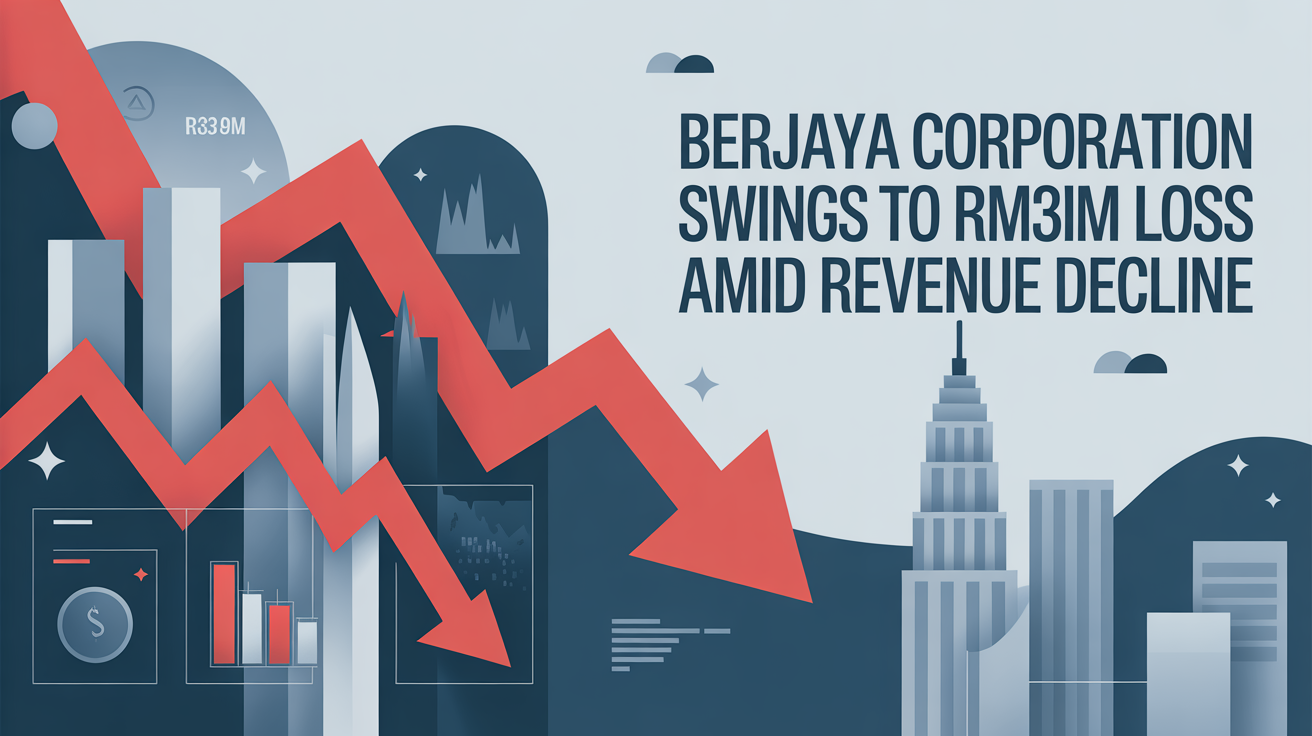Berjaya Corporation Posts RM339M Loss Amid Revenue Dip
Quarterly results may sound like corporate jargon, but when Berjaya Corporation Bhd (BCorp) a household name tied to Starbucks, Cosway, and even luxury cars posts a RM339.3 million loss in 4Q25, it affects more than just investors. For young Malaysians, it connects to jobs, consumer trends, and even the coffee you grab on your way to class or work.
BCorp’s financial story this year is one of contrasts: losses on paper, resilience in operations. Let’s break it down.
Berjaya Corporation 4Q25 Results: Revenue at RM2.37 Billion
For the quarter ended June 30, 2025 (4Q25):
- Net loss: RM339.3 million (vs. RM178.6 million loss a year ago)
- Revenue: RM2.37 billion (slightly lower than RM2.46 billion in 4Q24)
- Operating profit: RM89.8 million, up from RM66.7 million a year earlier
The deeper losses were mainly due to non-cash impairments on underperforming assets essentially accounting write-downs rather than cash leaving the business.
👉 For context, impairments often spook markets but don’t always reflect day-to-day business strength.
Hospitality Segment: A Bright Spot for BCorp

BCorp’s hospitality division emerged as a silver lining:
- Higher hotel occupancy rates driven by Malaysia’s rebound in tourism
- Improved margins thanks to leaner operations
“Tourism recovery is real, especially among Millennials and Gen Z who are traveling more locally. Companies like BCorp stand to benefit from this trend,” says Dr. Aiman Rashid, an economics lecturer at Universiti Malaya.
For young Malaysians exploring boutique hotels and resorts, this rebound signals better travel deals and more job opportunities in hospitality.
Retail & Food: Mixed Fortunes for Starbucks and Cosway
Not every brand under BCorp’s umbrella thrived.
- Cosway Retail:
- Stronger margins from better product mix
- Lower costs due to store closures
- But overall sales dipped
- Starbucks Malaysia:
- Dragged down by asset impairments
- Reduced store count hurt performance
If you’ve noticed fewer Starbucks outlets in your neighbourhood mall, you’re not imagining it. While Gen Z coffee culture remains strong, corporate strategy is shifting to quality over quantity.



